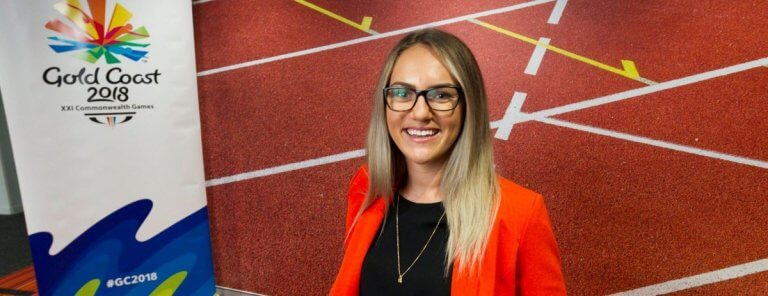
Internships, work placements, fieldwork. These are now integral parts of a university degree.
In Australia, a new report has found that close to half a million university students took part in industry-led projects, fieldwork, practical simulations and work placements in 2017. These career-preparation activities, known as work integrated learning (WIL), are considered important by 91 percent of Australians, with one in three rating them as “extremely important” and a further one in three rating them as “very important”.
The nation’s first comprehensive snapshot of WIL also found that Australian universities offered 555,403 workplace experiences in 2017. These are equally distributed to 357,806 Australian students or permanent residents, 93,126 international students, 5,486 indigenous students and 67,116 students from regional and remote Australia.
“This is an important testament to the value of an Australian university education for students from all around the world, equipping them with career skills,” the report said.
New data collected by @uniaus & launched today by UA Chair Professor @GardmarM shows almost half a million uni students had a workplace experience as part of their studies #NPC #highered #UAconf2019 pic.twitter.com/BsD2d9rqKl
— Universities Aust. (@uniaus) February 27, 2019
Where previous decades focused disproportionately on internships, a wider range of WIL options now exist for Australian students today. Work placements, where students spend time in a workplace to develop skills and network, are the most common and account for 43 percent of WIL options, followed by industry projects (23 percent), fieldwork (10 percent) and industry simulations (13 percent).
These figures show the extent and diversity of work readiness activities in Australian universities today. Here are a few examples of WIL done right Down Under, as found in the Career Ready Graduates report:
1. An engineering degree with no formal lectures or exams
At Charles Sturt University (CSU), students spend the first 18 months on campus completing four real-world projects. Following this, they pursue four years of paid placements and undertake self-directed learning online. There are no formal classes, lectures or exams.
The university’s bold move to treat students as engineers from day one is said to pay off. The biggest feedback from host engineers is that CSU students are coming in work-ready, according to Foundation Professor of Engineering, Euan Lindsay.
“They’ve already got those professional enterprise skills that make them feel like they belong in the
organisation, and that they are contributing value to their organisation straight away,” says Lindsay.
2. From the Commonwealth Games to paid employment
For 235 students at Griffith University, the 2018 Gold Coast Commonwealth Games was an invaluable experience to feel what it’s like to organise one of the highest-profile public events globally. From business and tourism through to engineering and design, the suite of internships the university had secured meant the entire university could work with a variety of departments with the Gold Coast Commonwealth Games Organising Committee (GOLDOC).
After spending 35 hours a week on a 12-week internship, 61 students were hired in paid positions by GOLDOC. Brittany Bell, a student working as a spectator experience intern, says the internship “exceeded my expectations every day.”
“Completing this internship has definitely been one of the best things I have done for my career and future,” she adds.
3. An investment fund for a worthy cause
The Australian National University’s (ANU) Student Managed Fund lets economics and business students manage, on their own, a real endowment fund, with proceeds going towards equity scholarships. To date, it has amassed assets worth AU$660,000 and represents an invaluable experience for students in terms of researching investment opportunities and the day-to-day management of the fund.
“The real value and gravity of this student fund was truly reflected to me during the interviews for the Morgan Stanley Investment Banking scholarship — it was all they wanted to talk about,” one student said.
“Yes, I have had internships and done the usual student activities, but to have real valuation experience, and manage real money under the guidance of such incredible academics was the standout.”
4. Fighting bushfires and infectious eye diseases
That’s just a taster of the diverse range of work students at Monash University’s award-winning summer placement programme, Monash Industry Team Initiative (MITI), get to do.
Working with global firm Honeywell Building Solution, MITI participants are also helping to build the world’s first cognitive office with optimum energy use and with the capability to alert owners to the need for repairs.
A MITI-developed toll payment app for Transurban has even been commercialised. The company also employed 15 Monash students from the MITI programme. Transurban CEO Scott Charlto said:
“You bring in very energetic, talented people without biases or background in the industry and they just think differently. They ask questions we’ve given up asking a long time ago and therefore we rethink the answers and we get much better outcomes.”
5. High-performance sports specialists
When Australian Catholic University’s Masters of High Performance Sport student Greta Conlan was interning with the Wests Tigers NRL team, her mentor got a job in the NBA. Conlan was sought to replace her mentor’s position as sports scientist to work with elite athletes in the rugby team.
“I think they liked the fact that I was a familiar face and I knew the programme and how it worked. I knew all the things that we had to do day-to-day,” Conlan said.
Conlan isn’t the only student to land a job in professional sports without any prior experience. ACU health students clocked in over 320,000 days of WIL and 26,000 work placements in 2017 alone. Many students have landed a job directly from their placement, said ACU’s Associate Professor Jillian Fox, adding that the placements also benefit the university’s partners “because it gives them access to our students, so they get to contribute to our programmes and meet our students early on.”
Liked this? Then you’ll love…
Are paid student internships rising in popularity?
What the internship scene in Australia looks like for international students in 2018







